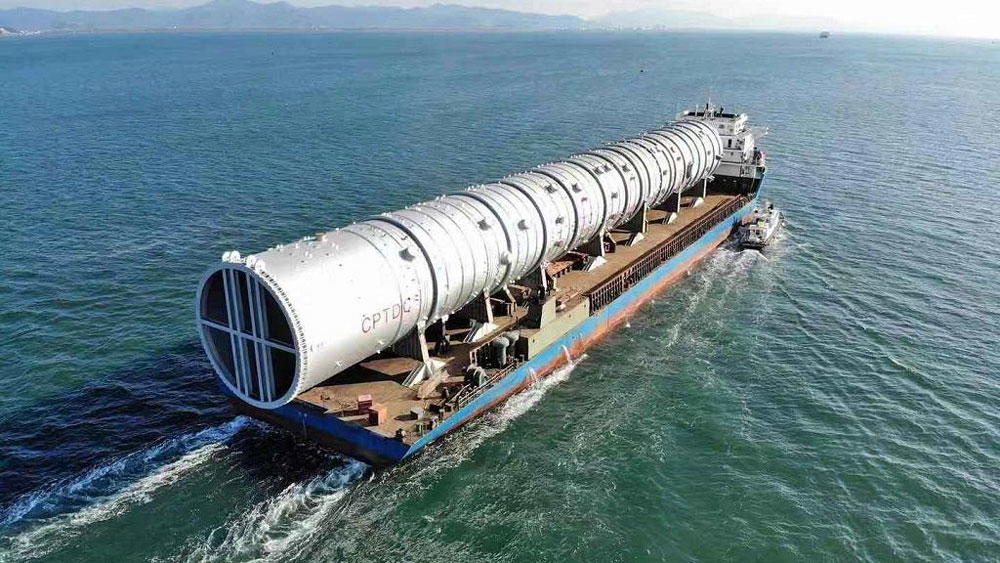

By Donu Kogbara
MY erudite uncle, Jonas Odocha, a graduate of the world-famous Imperial College in London and former Group General Manager of the Nigerian National Petroleum Corporation, NNPC, recently sent me his thoughts on two issues that should interest all thinking Nigerians.
I’m sharing his educational views with Vanguard readers verbatim because I can’t express them any better than he has:
From fuel subsidy to transport subsidy: Quo vadis?
Conventional wisdom teaches, as in management practice, that when you find yourself in a hole, you must not dig deeper. Fuel subsidy is bipedal; the amelioration of landing cost of petroleum products by the government as well as the absorption of differential transportation costs to all parts of the country by the Petroleum Equalisation Fund, PEF.
READ ALSO:Banker gets N1m bail for alleged N600,000 fraud
The impact on the national economy has remained monumental and any responsible government must rethink an approach to salvage the economy. This subsidy scenario would have been avoided if our four refineries of 445,000bpd capacity were genuinely routinely maintained and functional.
Come 2022 we are being hinted that petrol, a.k.a. premium motor spirit, PMS, a most essential energy commodity, will cost N340 per litre as opposed to the current N165 pump price, with the total removal of subsidy.
But then if it will cost N340 on landing in Lagos and N340 in Enugu, Yola, Kaduna or Sokoto, who then has absorbed the differential transportation cost? Nigerians must come to terms with some of these permutations by government.
Again it appears a critical dimension is being overlooked. A local refinery, Dangote Refinery, of 650,000 bpd capacity is likely to come on stream in 2022 and fortunately NNPC has a considerable stake as is being reported.
Is the government basing this proposed N340 per litre still on imported PMS or is this the price being recommended for the private refinery? No subsidy and still price fixing?
If this private refinery of 650,000 bpd capacity, being owned and operated in Nigeria by a noble Nigerian entrepreneur like Aliko Dangote should take off in 2022, I think this government should consider a more plausible and realistic price for PMS for the Nigerian citizenry, as opposed to equating it to the price of imported PMS sans subsidy.
Moreover, Dangote Refinery does not have to buy offshore Nigerian crude oil but should be able to purchase crude oil from Nigeria on Nigerian shores. All these factors should help bring down the cost of refined products in Nigeria.
It is important to recall that at some stage when our refineries were producing optimally, crude oil was being sold to NNPC at about 50 per cent of the international cost, for local refining. That made sense.
Whatever we can do to reduce the financial burden on the Nigerian citizenry come 2022, our government must think deeper and pursue such goals. Replacing fuel subsidy with this transport subsidy of N5,000 per month to 40 million destitute Nigerians appears nebulous.
A local refinery that has the obvious potential to be run efficiently should be a source of pride to our country, in products availability and affordability, when viewed against the backdrop of our enormous endowment of petroleum natural resources. Yes we have!!!
Utilising science and technology for national growth and development
GROWTH and development, as a concept, in whatever shape or form, is predicated on measurable value addition. It is thus commonplace to learn of economic growth, industrial growth or population growth, all geared towards national development.
But there are obvious enablers in the form of available resources, which include human resources and natural resources. These resources are veritable tools, which when utilised optimally; confer on nations the quality growth and development required for stability and good governance.
Knowledge is the engine that propels the utilisation of these resources. It readily comes in the form of Education, which embodies among others, Science and Technology. Science offers humanity the ability to acquire knowledge of facts or principles, in tackling challenges and resolving issues in a methodical, auditable and measurable manner. It is thus empirical.
In the same manner Technology opens up the practical use of scientific knowledge in advancing Industry and our everyday life. This is why education is accorded priority attention in countries that focus on growth and development; and Nigeria must not be an exception.
Ironically there are a number of tertiary institutions of Science and Technology in this country but their impact must be felt and recognised. In Agriculture they can improve technology for modern methods, to increase produce yield, and enhance preservation to ensure food security.
They can be involved in infrastructure development and fabrication of equipment and tools that will reduce importation of such and help conserve foreign exchange.
In the next couple of days, one of these institutions will be graduating 4,412 students out of which 64 have been awarded First Class degrees. In addition, 42 have attained the doctorate category, with 219 at the Masters level.
One question readily comes to mind: With this level of attainment in science and technology, why is it difficult for these institutions to design and produce meters to monitor electricity consumption in homes and establishments? Have they even thought of contraptions like this which High School students in a country like South Korea toy around with? What are their challenges if any?
These are issues we must begin to interrogate if Science and Technology are to play a key role in our country. It is heartwarming that this same institution is planning to establish a “School Of Electrical Systems Engineering Technology”, SESET in the next academic year.
But it is more important that the knowledge acquired be put into practical purposes, so that our country Nigeria can produce basic technological equipment and materials, to put an end to the importation of same.
The post Smart perspectives on current challenges appeared first on Vanguard News.
0 Commentaires